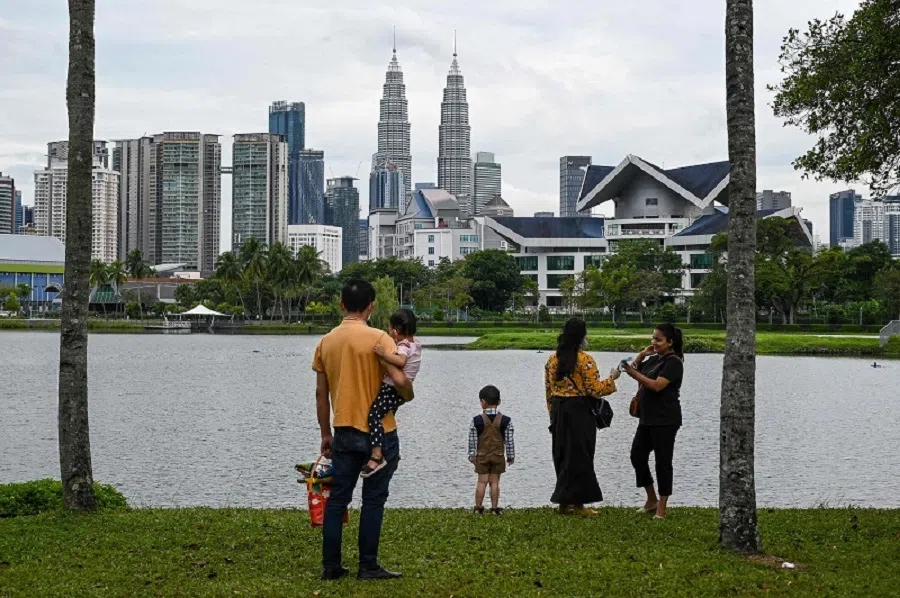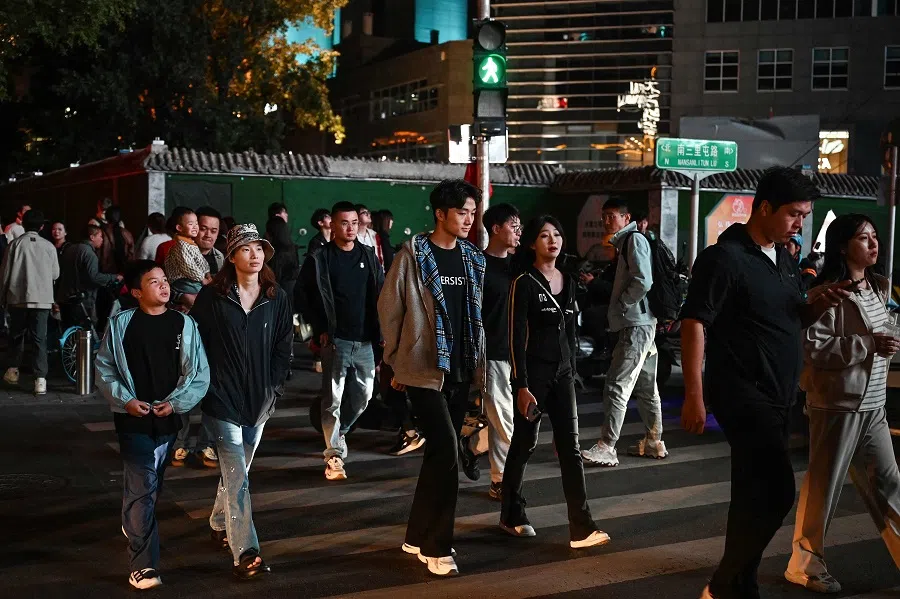China’s soft power: Alumni of China’s universities fostering closer ties in Southeast Asia
Malaysian academic Ngeow Chow Bing looks at the outreach efforts of Chinese university alumni groups in Malaysia, observing that while not all organisations are equally effective or dynamic, together they form a vast network of organisations and associations that constitute a vibrant component of the social foundation that sustain Malaysia-China bilateral relationship.

On 10 August 2024, the Peking University Alumni Association of Malaysia (PKUAAM) organised a large banquet in Kuala Lumpur with hundreds of attendees and dignitaries including a minister, ambassadors and members of the national parliament, senate and state assemblies, among others.
Chang Li Kang, Malaysia’s minister of science, technology and innovation, gave a speech extolling the accomplishments of Peking University (Beida) as a world-class university, the great potential the university could contribute to Malaysia’s progress, and the achievements of PKUAAM in building stronger relations between China and Malaysia.
It unveiled the concept of “Nanyang Beida Alumni” (Nanyang Beidaren 南洋北大人), symbolising connections and bonds between the university, China and the Nanyang region.
Highlighting bonds between Chinese universities, China and Nanyang
The event was also attended by Peking University alumni associations of other Southeast Asian countries, Hong Kong, Macau and Taiwan. It unveiled the concept of “Nanyang Beida Alumni” (Nanyang Beidaren 南洋北大人), symbolising connections and bonds between the university, China and the Nanyang region.
A forum based on this theme was held before the banquet, whereby the Kuala Lumpur declaration, signed by representatives of nine Beida alumni associations (Malaysia, Singapore, Thailand, the Philippines, Indonesia, Myanmar, Hong Kong, Macau, Taipei), was issued.
The declaration calls for the alumni to promote Beida and to build friendly people-to-people platforms between China and Nanyang through academic, cultural, science and technology, youth, and media activities. The declaration ends with the slogan “anchored in Nanyang, amity between China and foreign, associating with the world” (lizhu nanyang, youhao zhongwai, rongtong shijie 立足南洋、友好中外、融通世界!), and echoes the Chinese diplomatic concept of the “community of shared future”.
Since being founded in 2013, PKUAAM has been one of the most active and energetic alumni organisations in Malaysia. A tenth-year commemorative volume of PKUAAM, titled Southern Branch Evermore Blooms (《南枝更有花》), was published and launched in 2024. The book has a detailed record of the extensive activities of the organisation.
PKUAAM supported the university’s recruitment efforts, fostered a strong bond among and between the alumni, as well as current and new students. It extended the university’s outreach and contacts to various sectors, secured scholarships for prospective students, engaged in public welfare and community activities, produced a short documentary on Malaysia-China relations, and organised cultural exchanges and academic seminars, among other activities.
In the future, it plans to launch an alumni association fund and a “Friends of Beida Club” that can further expand the network of Beida beyond the alumni community. In 2019, PKUAAM was awarded the “Distinguished Alumni Organisation” award by Beida.
PKUAAM and other alumni organisations mentioned above were all formed and driven by Malaysians (the vast majority of them are of the ethnic Chinese community, though)...
Alumni organisations as network groups and instruments of soft power
Other than PKUAAM, there are other alumni associations in Malaysia, such as those of Jinan, Xiamen, Fudan, Tsinghua, Zhejiang, Huaqiao, Beijing University of Chinese Medicine, and so forth. Jinan University Alumni Association will host a large event of the gathering of the world’s Jinan alumni associations in Kuala Lumpur in November this year. In addition, there is also the Association of the Graduates from Universities and Colleges from China, Malaysia (often referred to as Liu Hua in Malaysia), which is open to all graduates of universities in China to join.

Liu Hua has been instrumental in promoting China’s higher education sector to Malaysians and also an active organisation advancing people-to-people and educational exchanges between China and Malaysia. While not all organisations mentioned above are equally effective or dynamic, together they form a vast network of organisations and associations that constitute a vibrant component of the social foundation that sustain Malaysia-China bilateral relationship. They also certainly bolster China’s “soft power” in the country and beyond.
Chinese leader Xi Jinping has persistently exhorted his officials to do a better job in “telling the China story well” (jianghao zhongguo gushi 讲好中国故事), amid concerns that China’s soft power often comes up short. The effectiveness of state-backed instruments of soft power, such as Confucius Institutes or the promotion of Chinese media to foreign audiences, remains doubtful if not dubious. Instead, the enhancement of China’s soft power often comes from unexpected sources, such as the recent video game phenomenon of Black Myth: Wukong, which has captured the attention of millions of foreign gamers and their interest in Chinese culture.
Foreign alumni of China’s universities can also be effective, persuasive, impactful resources in “telling well the China story”, as they had personally experienced the story and benefited from it. PKUAAM and other alumni organisations mentioned above were all formed and driven by Malaysians (the vast majority of them are of the ethnic Chinese community, though), and now they play an important role in fostering connections between China and Malaysia.
As articulated in an article co-written by Nai Chen Huang, president of PKUAAM and two scholars from Beida: “Foreign students embody and co-create stories of China-foreign friendship, and they are the important connectors between China and the world….[T]he foreign alumni communities should be fully activated and mobilised, so that they could become the important voices telling the China story well.”
The article made a suggestion that the Chinese embassies worldwide should take a proactive role in organising and inviting the best and brightest alumni to Beijing, and to interact with Chinese government leaders and be given friendship awards. This will demonstrate how much emphasis China has placed in supporting its foreign alumni, which will further enhance their enduring relationship with China.
The pandemic years slowed down the growth of international students in China, but after the pandemic, the number is steadily reaching the pre-pandemic level, with 2022 recording around 440,000 students.
Still not that widespread in other parts of Southeast Asia
The vibrant presence of China’s alumni activities in Malaysia certainly has been exemplary, but in other Southeast Asian countries the extent of such alumni activism is uneven or more circumspect. Thailand comes closest to Malaysia’s scale of alumni activism, spearheaded especially by the Thai Alumni Association of China’s Universities.
Singapore also boasts a large number of graduates of China’s top universities, but most of them are either first-generation migrants to Singapore or long-term residents (but not citizens) of Singapore, and in this sense they are not exactly the kind of “foreign alumni” envisioned to play a cultivating role between China and foreign countries.

In the Philippines, the persistent tensions with China overshadow any overt display of friendship with China by the alumni, resulting in their more low-profile existence. Even within Malaysia, the lively alumni organizations have been mainly confined within the ethnic Chinese community, with the Malay alumni of China’s universities (most of them graduates of Beijing Foreign Studies University or Beijing Language and Culture University) less active and impactful.
China’s universities, especially the top-tier elite universities, are now being recognised as among the best in the world. These universities are now receiving growing interest as destinations for higher education, especially in many developing countries.
The highest number of international students in China was about 488,000, right before the pandemic. The pandemic years slowed down the growth of international students in China, but after the pandemic, the number is steadily reaching the pre-pandemic level, with 2022 recording around 440,000 students.
With such a large number, there is a great potential for China to reach out to, support, mobilise and utilise these vast and resourceful networks of alumni, making them the crucial connecting ties for China’s engagement with the world.





